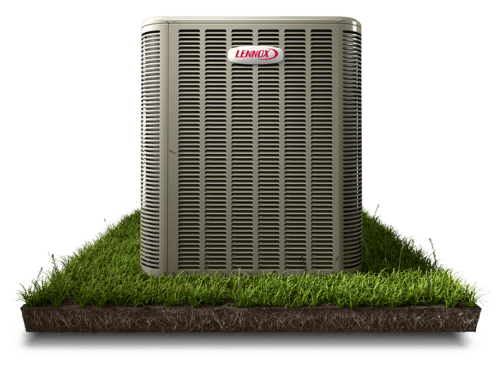Lower SEER air conditioners are often single-stage and only operate at one speed. This implies that you’ll have uneven cooling or hot and cold regions since they often switch on and off during moderate weather. Higher humidity levels will also be present, making it seem more alluring than it is. To reduce humidity in your home’s air, your A/C must operate for a longer duration. A single-stage system’s ups and downs do not account for this. People who reside in a hot area need an air conditioner with a higher SEER that will make them more comfortable throughout the summer.
What Is SEER Rating?
SEER is the abbreviation for Seasonal Energy Efficiency Ratio. The cooling output of an air conditioner over a typical cooling season divided by the energy it consumes in Watt-Hours results in this ratio. A seasonal energy efficiency rating is another name for it. Using a constant indoor temperature and a range of exterior temperatures from 60 degrees to plus 100, a SEER ratio is determined throughout a complete cooling season. In this way, a regular season is mimicked.
HVAC systems must be adequate, secure, and ecologically friendly, which is why the AHRI (Air-Conditioning, Heating, and Refrigeration Institute) calculates the SEER rating. When a unit is operated in line with the annual consumption patterns typical of ordinary houses, the rating determines the average cooling output it produces vs. the energy it uses. The system’s energy efficiency improves with a higher grade.
What Is a Good SEER Rating?
The efficiency of the unit improves with increasing SEER ratings. Modern units must have a rating of at least 13, and the majority fall between 13 and 21; however, specific models may have considerably higher ratings. Conversely, older and less expensive devices may have a lower rating. For comparison, most HVAC systems used in new construction have SEER ratings of 8 or 9.
It’s important to remember that the rating represents the HVAC system’s maximum efficiency, and the degree of performance may not always be there. When compared, SEER ratings behave similarly to a car’s gas mileage. An automobile could have a highway fuel economy of up to 35 miles per gallon, but that doesn’t imply it constantly operates at that level. Your MPG will inevitably be significantly lower in city traffic.
Why Is SEER Rating Important?
Before making your final purchase, there are many things to consider if you’re looking for an HVAC system. The SEER rating is one of these elements. Why is it crucial to consider this rating when choosing an HVAC system? Find out by reading on.
1. Savings
Indirectly, a high SEER rating indicates that you’ll start seeing significant energy savings as soon as the unit is operational. Commercial or industrial buildings in regions with prolonged cooling seasons should consider HVAC systems with higher SEER ratings since central cooling equipment is commonly utilized throughout the summer.
Regarding reducing your energy cost, a SEER rating is vital; an air conditioner will use less energy to cool your house if it has a higher SEER rating since more excellent efficiency ratings equate to higher SEER ratings. This may result in significant monthly electricity bill savings, particularly in the year’s warmest months. Additionally, if your rating is higher than 16 SEER, your local utility provider may be able to offer you a tax credit or refund.
2. Discreet Operation
An air conditioner is quieter if it has a higher SEER rating. Higher SEER units have compressors that operate at slower rates, which is more peaceful. Additionally, systems with higher SEER ratings often have more giant fans and condensers. Further, this lowers noise levels. The system will cycle on and off less often since it won’t have to work hard to maintain the desired temperature.
3. Lifespan
The SEER rating also hints at how vulnerable an HVAC system is to wear and tear. For instance, a higher SEER rating indicates more efficiency, which results in minor wear and tears on system components. Less mechanical wear enables you to maximize your investment while lowering maintenance and repair expenses, and it also ensures the system will last longer before requiring repairs or replacement.
Finding solutions to extend the service life of your HVAC system might result in significant long-term savings due to the high cost of replacing a commercial or industrial HVAC system. However, consider that various factors, such as how often you use the device and how well you maintain it, may impact your system’s overall lifespan and effectiveness.
4. Efficiency
The SEER rating measures how energy-efficient an HVAC system is by comparing the cooling capability of an HVAC unit to the relative amount of energy it uses throughout a regular cooling season. As a result, systems with higher SEER ratings are more energy-efficient. Compared to equipment with a lower SEER rating, a high-efficiency system is more ecologically responsible since it requires less energy.
5. Environment-Related Issues
It’s crucial to consider when buying an air conditioner since units with lower SEER ratings consume more energy, increasing both your utility costs and carbon impact. Higher SEER air conditioners, on the other hand, are much more energy- and emission-efficient. Consequently, they are healthier for the environment, your health, your wallet, and your budget.
6. Operating Costs Per Year
Building owners, managers, and operators may determine how much it will cost to run a central cooling system for an entire year using the SEER rating. You may calculate how many watts the device will need every operational hour by multiplying the quantity of BTUs by the system’s SEER rating.
7. Improved Technology
Manufacturers are more inclined to employ better-quality parts to justify the more significant expense of higher-SEER devices. Higher SEER units are more dependable since they often feature bigger condensers and evaporators, which boosts efficiency and averts possible problems like freezing. Lengthier warranties are sometimes offered with higher SEER systems, a sign of the manufacturer’s confidence in the design. Although it may initially cost more, a higher SEER rating is often worthwhile due to its dependability and giving you peace of mind.
Do You Need SEER Rating Services ?
For more than ten years, Comfort Zone Heating & Air Conditioning has provided excellent service and solutions with a personalized local touch to the residents of Cobourg, ON and the surrounding areas. Our hand-selected team of top industry professionals will accurately assess your property and demands and provide distinctive solutions for every situation. Among the heating and cooling services we offer are:
- Furnace Repair
- Furnace Installation
- Furnace Maintenance
- AC Repair
- Indoor Air Quality
- Ductless
- Water Heater
- Heat Pumps
Every member of the Comfort Zone Heating & Air Conditioning staff, from installers to customer service agents, believes in the benefits of forging enduring connections. We support our clients by offering the most outstanding service and product guarantees.
We take great pride in assisting regional home builders, remodeling experts, and inspection teams committed to upholding the highest standards. Our community is strengthened and is further built when local companies are supported, in our opinion. The Comfort Zone Heating & Air Conditioning staff is committed to giving back to the community via volunteerism and philanthropy.
Whether it’s Christmas Day or the middle of the night, Comfort Zone Heating & Air Conditioning will be on-site to fix any issue with absolute 24-hour service. Every day of the year, our support personnel team works to keep your equipment safe. To find out more about us and our services, feel free to contact us.




